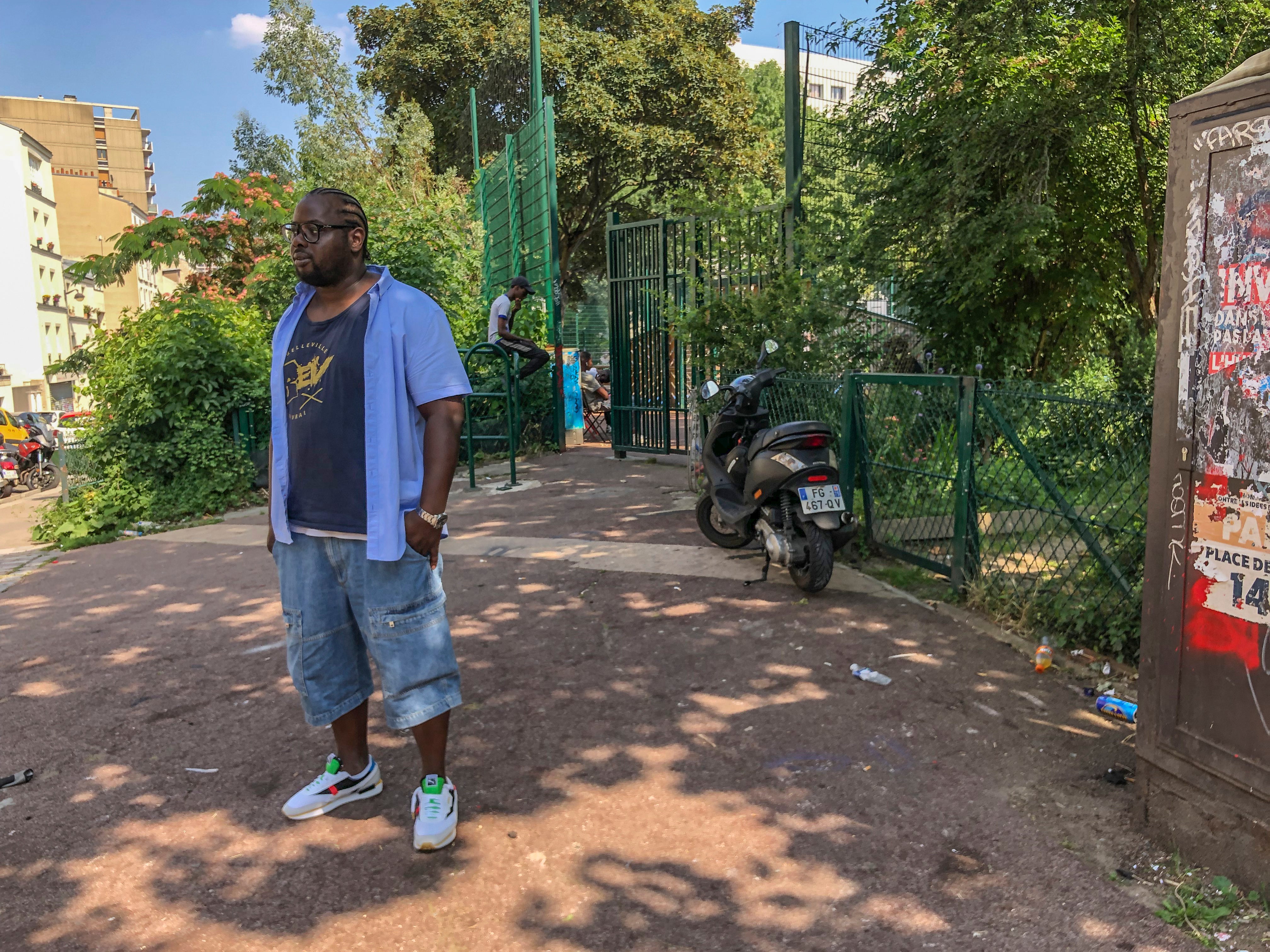Rights groups take French racial profiling case to top body
Leading rights organizations and grassroots groups are taking France’s first class action law suit targeting the nation’s powerful police machine to the highest administrative authority to fix what they contend is a culture of systemic discrimination in identity checks

Your support helps us to tell the story
From reproductive rights to climate change to Big Tech, The Independent is on the ground when the story is developing. Whether it's investigating the financials of Elon Musk's pro-Trump PAC or producing our latest documentary, 'The A Word', which shines a light on the American women fighting for reproductive rights, we know how important it is to parse out the facts from the messaging.
At such a critical moment in US history, we need reporters on the ground. Your donation allows us to keep sending journalists to speak to both sides of the story.
The Independent is trusted by Americans across the entire political spectrum. And unlike many other quality news outlets, we choose not to lock Americans out of our reporting and analysis with paywalls. We believe quality journalism should be available to everyone, paid for by those who can afford it.
Your support makes all the difference.After months of government silence, leading rights organizations and grassroots groups took France’s first class-action lawsuit targeting the nation’s powerful police machine to the highest administrative authority Thursday, to fix what they contend is a culture of systemic discrimination in identity checks.
The 220-page file, chock full of examples of racial profiling by French police, was being delivered Thursday to the Council of State, the ultimate arbiter on the use of power by authorities. It was compiled by Amnesty International Human Rights Watch, Open Society Justice Initiative and three grassroots organizations that work with youth.
The NGOs allege that French police target Black people and people of Arab descent in choosing who to stop and check. Police officers who corroborate such accounts are among people cited in the file.
The groups behind the lawsuit contend the practice is rooted in a culture of systemic discrimination within the police with far-reaching consequences for people of color.
“It’s a humiliating experience. You’re in the street, you’re frisked, patted down and questioned in front of everyone,” said Issa Coulibaly, head of Pazapas, a youth association in eastern Paris involved in the suit.
Instead of money for victims, the suit seeks deep reforms within law enforcement to ensure an end to racial profiling, including a change in a penal code that currently gives officers carte blanche to check IDs — with no trace that they have done so. Among other things, they also want an independent mechanism to lodge complaints and training for police officers.
The groups took the case to the Council of State after the government failed to meet a four-month deadline to respond to the opening salvo in the class-action suit.
The prime minister’s office and the justice and interior ministries were initially served notice of the suit in late January — the first step in a two-stage process in a French class-action case. The law gave them four months to open talks with the NGOs on how to meet their demands for change within the police, before the matter could go before a court.
Those who brought the action contend it is in the interest of authorities, including law enforcement, to improve the notoriously poor relationship between police and youth in some neighborhoods.
Antoine Lyon-Caen, the lead lawyer in the case, said it is the first time a class-action suit against the French state is going before the Council of State. He called the government silence “humiliating” for racial profiling victims.
“Lots of people suffer from these practices and the government didn’t even feel a need to say something,” he said in an interview.
Coulibaly said the official silence is in keeping with “institutional denial” of the problem. But he said this next legal step is a new dose of hope for change.
Children as young as 10 can be checked if they are Black or perceived as of Arab descent, said Coulibaly, a 41-year-old Black man who said he was subjected to numerous undue ID checks starting at the age of 14.
“It’s a reality for all working class neighborhoods and a reality for the poor and where there are people of immigrant origin,” he said.
French courts have found the state guilty of racial profiling in identity checks in the past, most recently in June when a Paris appeals court ruled that discrimination was behind police ID checks on three high school students of color at a train station in 2017. The court convicted the French state of a “grave fault” and ordered reparations paid.
“The ID check is really the door for lots of things that can be very destructive in the life of a person,” Coulibaly said. “It can degenerate. After a 50th check in your life, the 10th in a week or the third check in a day, especially when you’re young, you have a tendency to react, to react badly."
The Council of State has the power to order the French state to end such practices and make the requested changes, Lyon-Caen said. The law requires a decision in a “reasonable” time, but that could be a year or more, he said, noting that the unprecedent case takes the Council of State into uncharted territory.